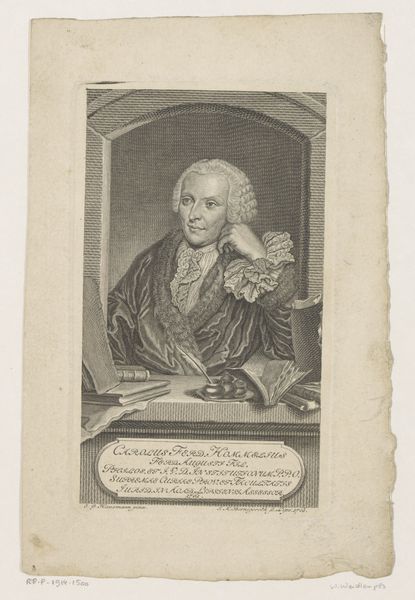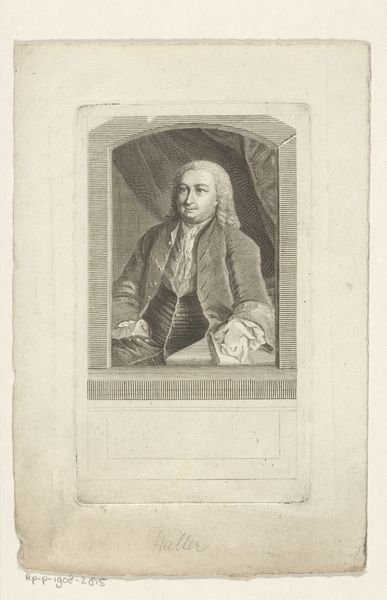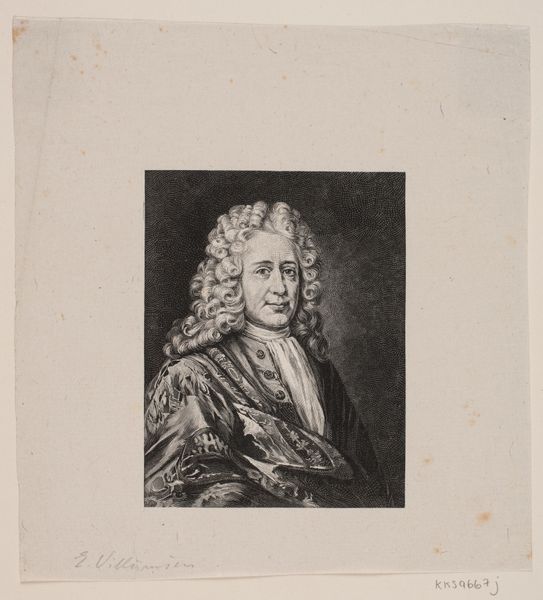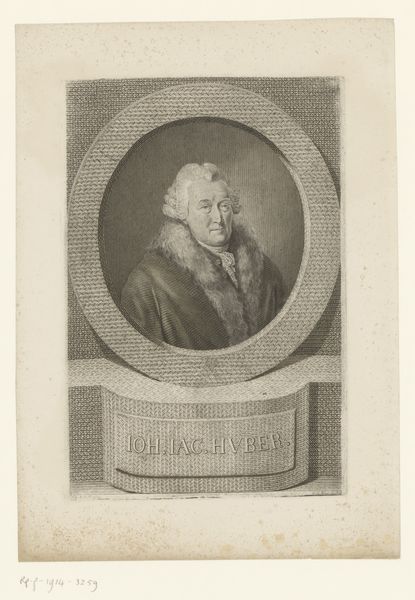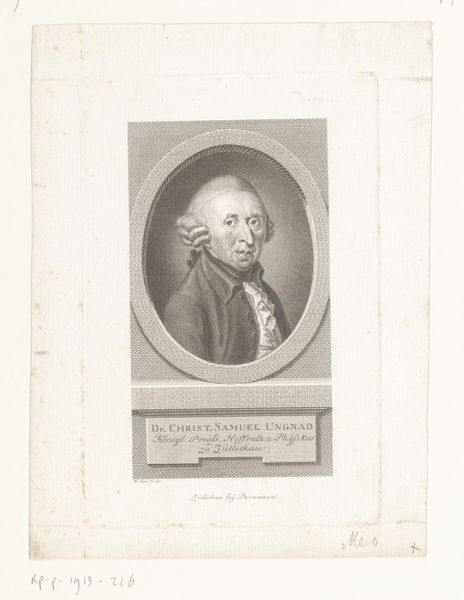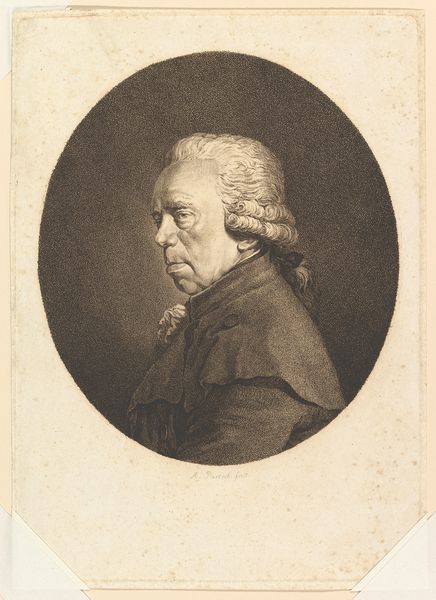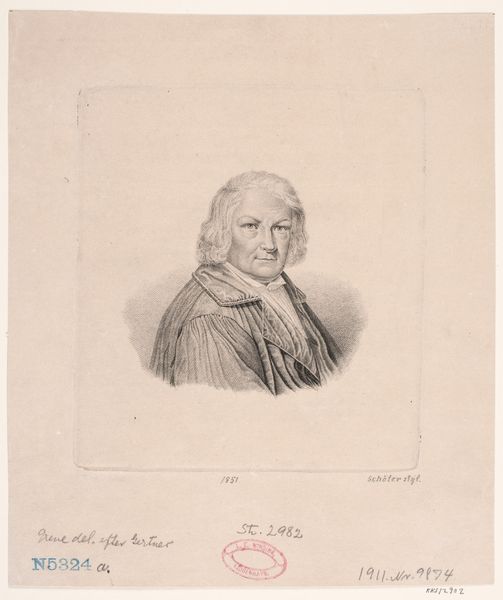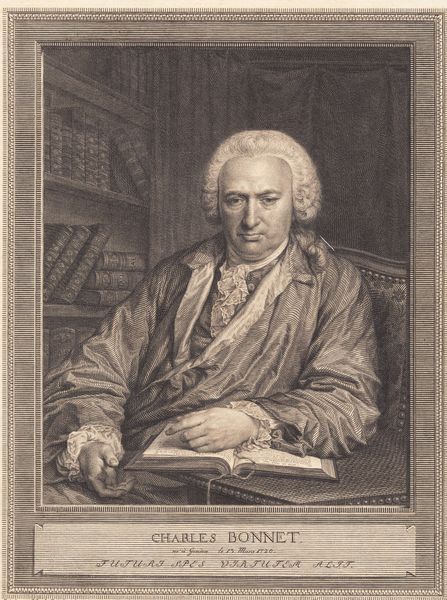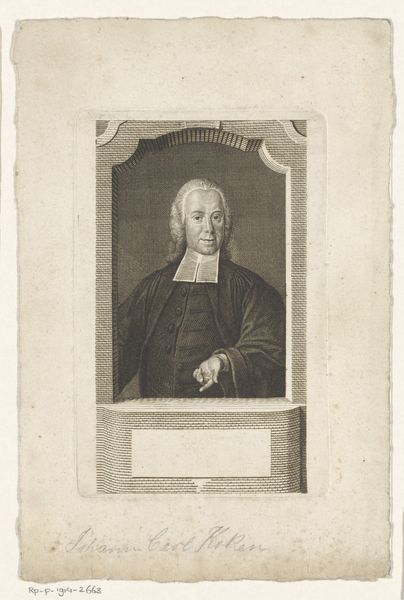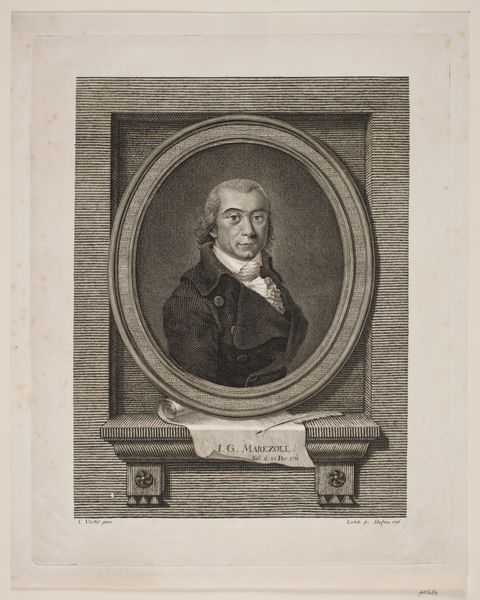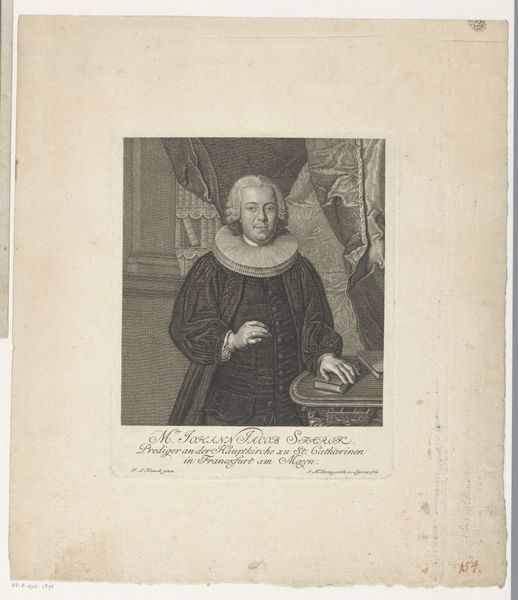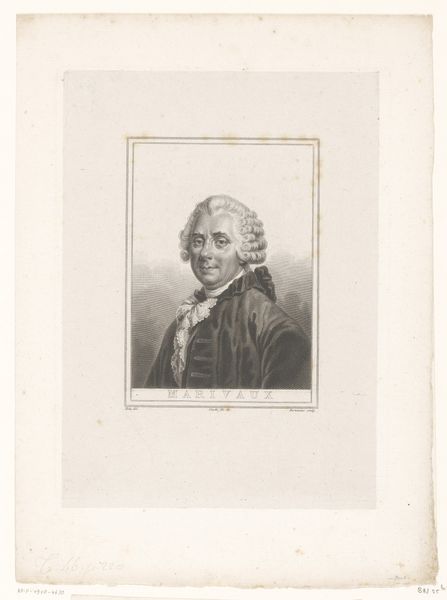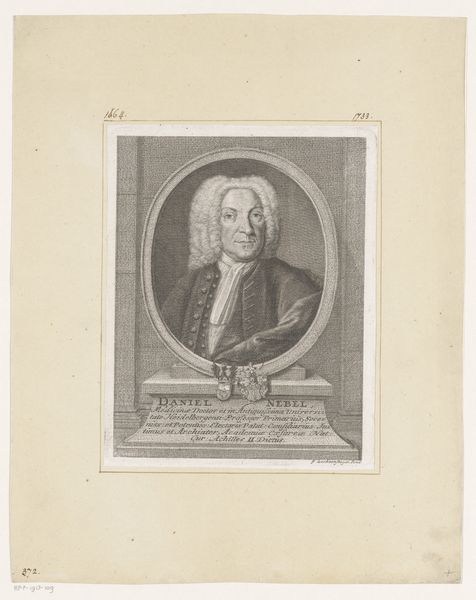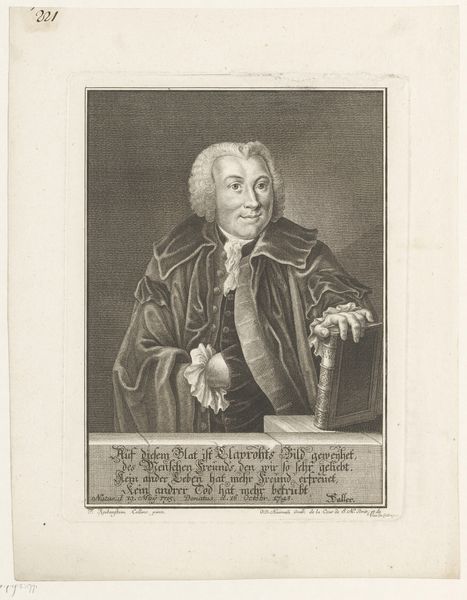
Portret van den raadpensionaris Van Bleiswijk. Buste met pruik en jabot, 3/4 links gewend. In den linkerbovenhoek een ledig wapenschild in eene eveneens ledige ronde lijst met lint en daaronder eene banderolle zonder eenig opschrift 1720 - 1792
0:00
0:00
aertschouman
Rijksmuseum
print, engraving
#
portrait
#
baroque
# print
#
old engraving style
#
engraving
Dimensions: height mm, width mm
Copyright: Rijks Museum: Open Domain
Editor: We're looking at "Portrait of Grand Pensionary Van Bleiswijk," an engraving by Aert Schouman dating from the late 18th century. There's something about the starkness of the print, especially the blank shield, that feels really… official, yet also incomplete. How do you interpret this work within its historical context? Curator: That emptiness is key. The blank coat of arms suggests a certain level of accessibility, or even a political statement about the shifting sands of power. Remember, portraiture in the 18th century wasn't just about likeness. It was about constructing identity, status, and legitimacy. The sitter, Van Bleiswijk, held significant political power. How might an empty shield challenge or reinforce that power in the eyes of the public? Editor: So, the absence becomes a kind of commentary? Maybe even criticism? Curator: Precisely. Engravings were mass-produced. This print served a public function, beyond simple admiration of a leader. Its reproduction and distribution also become a political act. Who controlled the means of producing and distributing imagery? What biases might be embedded? Consider too, the Rijksmuseum’s role. What does its acquisition and display of this piece say about our present-day relationship to that history? Editor: That's a good point about accessibility. It is reproduced today and is now more accessible than it ever was back then. I hadn't considered how its meaning changes with each context. Thanks, that’s really given me a different perspective. Curator: It’s a dialogue across time. Considering the politics of imagery allows us to see beyond the surface, uncovering deeper cultural narratives.
Comments
No comments
Be the first to comment and join the conversation on the ultimate creative platform.
